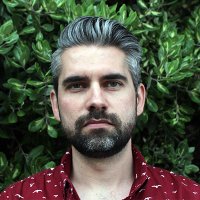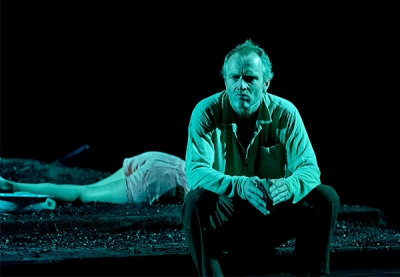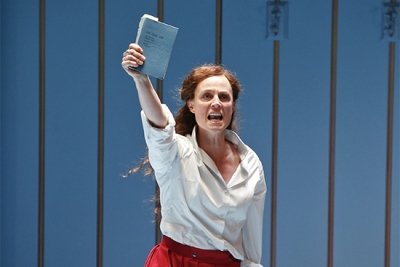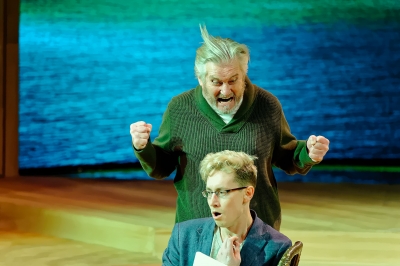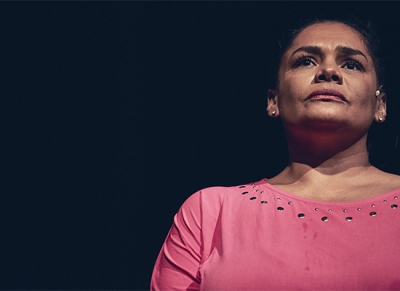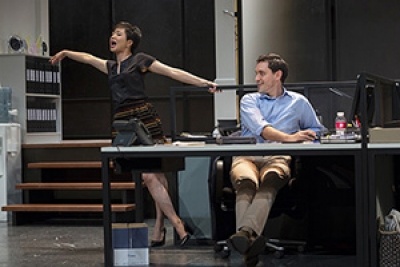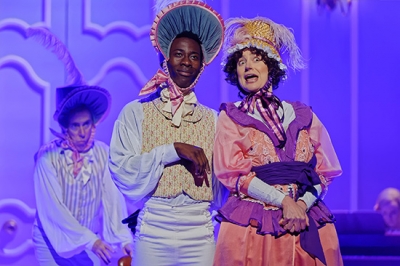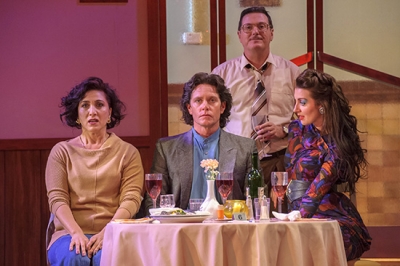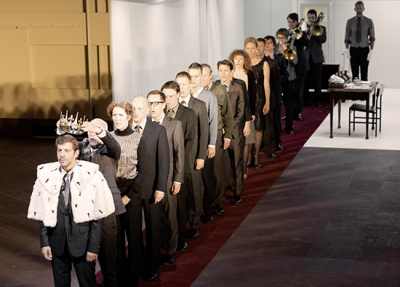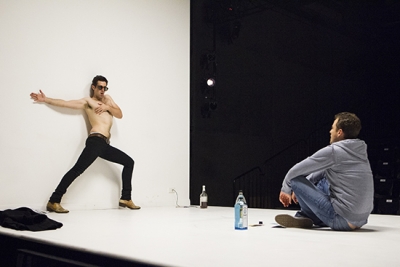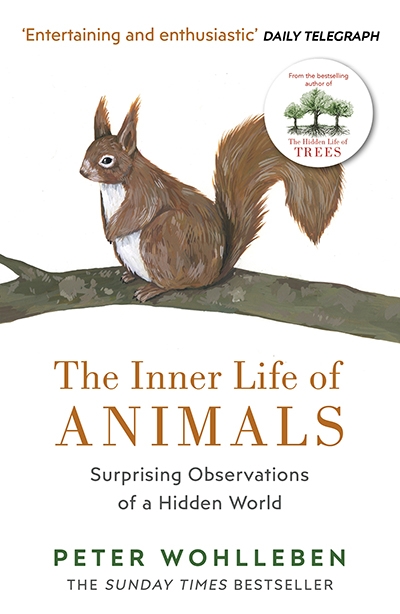Ben Brooker
Ben Brooker is a writer, editor, critic, playwright, essayist, and bookseller. He has a Bachelor of Arts (Hons) from Flinders University and an Advanced Diploma of Professional Writing from Adelaide College of the Arts. His work has been featured by Overland, New Matilda, New Internationalist, Australian Book Review, RealTime, The Lifted Brow, Witness, and Daily Review.
Almost one hundred and forty years have passed since Henrik Ibsen’s A Doll’s House shook the European bourgeoisie with its proto-feminist depiction of a woman walking out on her husband and children. Now American playwright Lucas Hnath has written a sequel of sorts, A Doll’s House, Part 2, which picks up Nora’s (Marta Dusseldorp) story fifteen years after she slammed the door on her lovele ... (read more)
August Strindberg thought Creditors, which premièred in its original Swedish in Copenhagen in 1889, his ‘most mature work’. Sitting alongside the more often performed The Father (1890) and Miss Julie (1889) in the playwright’s middle, ultra-naturalistic period, the play is an attempt to theatricalise ‘soul murder’, an idea – one that fascinated both Strindberg and his contemporary Hen ... (read more)
One would have hoped that in the four years since Jada Alberts’s fine début play Brothers Wreck premièred at Belvoir Street that its concern with the issue of Indigenous despair would have come to feel less vital, and yet the problem is as acute as ever. This week we learned that every child in detention in the Northern Territory, where Brothers Wreck is set, is Indigenous. Meanwhile, Aborigin ... (read more)
Ninety years ago, the British economist John Maynard Keynes forecast that by now, thanks to technological advances, we would all be working fifteen-hour weeks. Instead, we are drowning in work – much of it unnecessary – to the point of existential despair. According to recent studies in Britain and the Netherlands, almost half of us feel our jobs contribute nothing of value to the world.
Youn ... (read more)
The short-lived but bold experiment that has been the State Theatre Company of South Australia’s actors’ ensemble comes to an end with its fourth production, Kate Hamill’s adaptation of Jane Austen’s Sense and Sensibility. More on the play later, but what of the experiment? Acting ensembles have a chequered history in this country, and have not lately been in fashion. STCSA hasn’t had on ... (read more)
Thirty years old is a difficult age for a play in this country. Australian cultural memory is not exactly short, but it certainly tapers in the middle where such plays lie, flanked on one side by The Canon and, on the other, by The Next Big Thing. Andrew Bovell’s After Dinner – initially a melancholic one-acter for three women, later expanded and recast by the playwright for his drama school p ... (read more)
In a Festival glutted with plays about war and the violence wrought by powerful men, Dutch theatre company Toneelgroep’s Kings of War stands tall. A four-and-a-half-hour conflation of Shakespeare’s Henry V, Henry VI, and Richard III, it is directed by Ivo van Hove whose monumental Roman Tragedies – which conceived Shakespeare’s Roman history plays as an immersive treatise on contemporary p ... (read more)
I think it was Peter Brook who said the longest that a staging of a play could remain vital was five years. The Hayloft Project’s Thyestes, directed by Simon Stone and adapted from Seneca’s tragedy by Stone himself, Thomas Henning, Chris Ryan, and Mark Winter, was first seen at the Malthouse Theatre in 2010. Notwithstanding a handful of updates to the text, this production feels like it belong ... (read more)
In a 1974 paper, American philosopher Thomas Nagel famously wondered what it was like to be a bat. He concluded that we could never know what it was like to be a member of a different species – that the inner lives of animals are ultimately inaccessible to us. In Consciousness Explained (1991), Daniel C. Dennett, while acknowledging the influence of Nagel’s thought experiment, offered a rebutt ... (read more)

